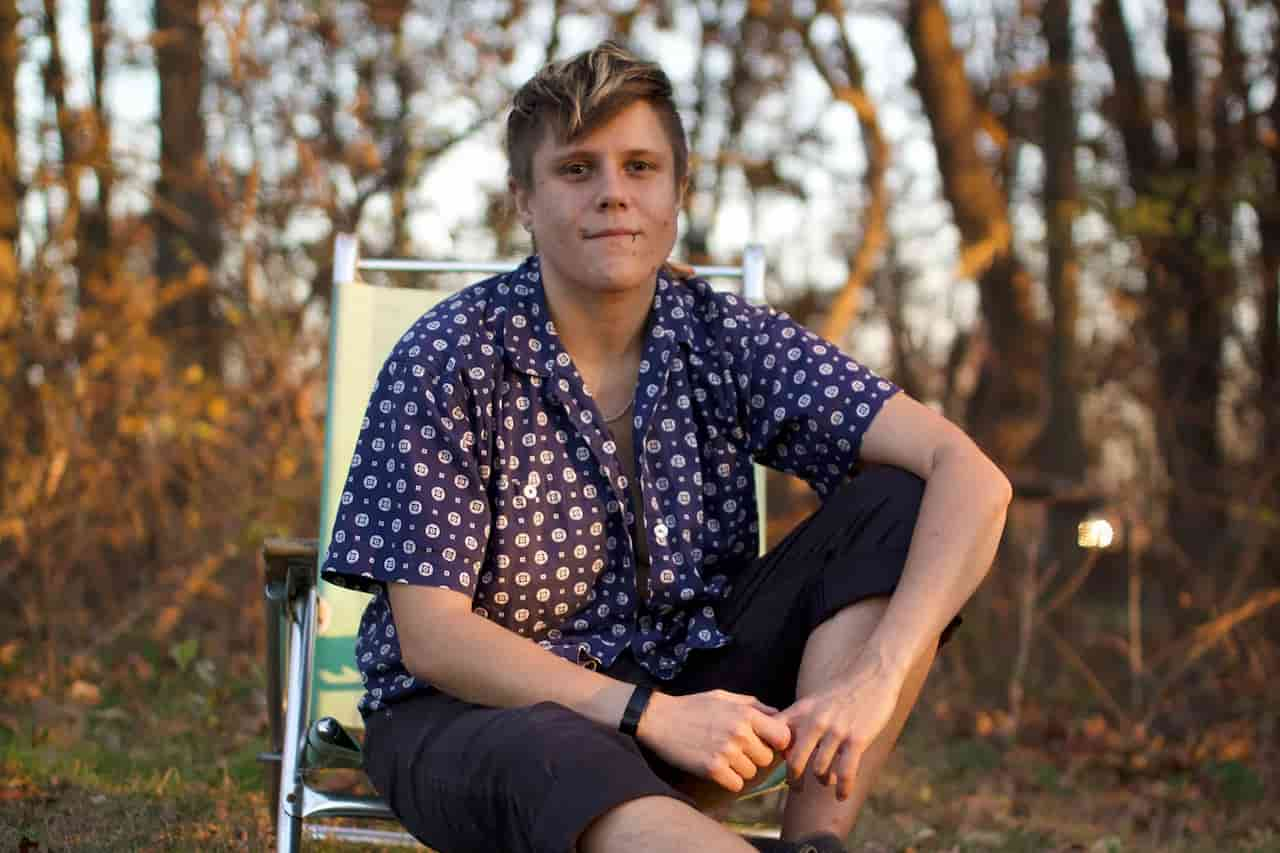The Scientific Fortune of Jules Hoffman: Unveiling His Net Worth in 2024:
Jules Hoffmann is a renowned French biologist and immunologist who made groundbreaking discoveries about the innate immune system in insects and mammals. His pioneering research on fruit flies uncovered critical mechanisms of how organisms defend themselves against infections, revolutionizing our understanding of immunology. Hoffmann’s work earned him the Nobel Prize in Physiology or Medicine in 2011, cementing his place as one of the most influential scientists in his field.
Throughout his long and distinguished career spanning over five decades, Hoffmann has made numerous contributions that have advanced immunology and inspired new approaches to treating infectious diseases and inflammatory disorders.
Who is Jules Hoffmann?
Jules Hoffmann is a Luxembourg-born French biologist who has devoted his life to unraveling the immune system’s mysteries. Hoffmann was born on August 2, 1941, in Echternach, Luxembourg. From an early age, he was fascinated with insects and biology. This childhood passion would ultimately shape his career and lead him to make revolutionary discoveries about innate immunity.
Hoffmann is best known for his research on the fruit fly Drosophila melanogaster, which uncovered a crucial mechanism of innate immunity called the Toll pathway. This work demonstrated that insects and mammals share similar innate immune defenses, contrary to previous beliefs.
His findings opened up new avenues for understanding how the human immune system fights off pathogens and has had far-reaching implications for treating various diseases. Beyond his scientific achievements, Hoffmann is recognized as a dedicated mentor who has inspired and guided many young scientists throughout his career at the University of Strasbourg and the French National Centre for Scientific Research (CNRS).
Jules Hoffmann Early Life and Education Qualification:
Jules Hoffmann’s journey into the world of science began in the picturesque town of Echternach, Luxembourg. Growing up as the son of a high school biology teacher, Hoffmann was exposed to the wonders of nature from an early age. His father’s passion for entomology, particularly the study of beetles, sparked young Jules’ curiosity about the insect world. This early exposure to biology would prove instrumental in shaping his future career path.
Hoffmann’s formal education began in Luxembourg, where he completed his primary and secondary schooling. Excelling in his studies, particularly in the sciences, he developed a strong foundation that would serve him well in his future academic pursuits. After finishing high school, Hoffmann decided to continue his education in France, ultimately leading him to the forefront of immunological research.
1962, Hoffmann enrolled at the University of Strasbourg, France, to pursue his higher education. Here, he truly began to hone his skills as a scientist and researcher. Under the guidance of Professor Pierre Joly, Hoffmann delved deeper into the world of biology, focusing on insect physiology and biochemistry. His doctoral thesis, completed in 1969, explored the role of steroids in insect development, demonstrating his early interest in the intricate biological processes of these creatures.
Jules Hoffmann Personal Life and Relationships:
While Jules Hoffmann’s professional life has been well-documented due to his significant scientific contributions, he has maintained a relatively private personal life. However, it is known that Hoffmann has been married to Danielle Hoffmann for many years. Danielle, like her husband, has a background in science, specifically in the field of neurogenetics. Their shared passion for scientific research has undoubtedly been a cornerstone of their relationship.
The Hoffmanns have two children who have pursued careers in the sciences, following in their parents’ footsteps. This familial dedication to scientific inquiry speaks volumes about the environment of intellectual curiosity that Jules and Danielle fostered in their home. Despite his demanding career and the pressures of high-profile research, Hoffmann has always emphasized the importance of maintaining a balance between work and family life. His ability to excel in his field while nurturing strong family relationships is a testament to his character and priorities.
| Attributes | Details |
| Real Name | Jules Hoffman |
| Nick Name | Jules Hoffman |
| Age | 19 years (as of the latest information) |
| Height | 5’7″ |
| Weight | 56 kg |
| Relationship Status | Not Found |
| Children | Not Found |
| Parents | Info Not available |
Jules Hoffmann Physical Appearance:
Jules Hoffmann, now in his early 80s, presents the distinguished appearance of a seasoned scientist. Standing approximately 5’9″ (175 cm) tall, he has a lean build typical of someone who has maintained an active lifestyle throughout his years. His most striking feature is perhaps his full head of white hair, which he often wears neatly combed back, giving him an air of wisdom and experience.
Hoffmann’s face is marked by the lines of a life dedicated to intense concentration and intellectual pursuits. His deep-set eyes reflect his keen observational skills. He typically dresses professionally, befitting his status as a respected scientist. He is often seen in tailored suits or smart casual attire during public appearances and lectures.
Jules Hoffmann Professional Career:
-
Early Research and Career Beginnings:
Jules Hoffmann’s professional career began in earnest after completing his doctoral studies at the University of Strasbourg in 1969. He joined the French National Centre for Scientific Research (CNRS) as a research assistant, where he continued his work on insect physiology and biochemistry. During this early period, Hoffmann focused on understanding the hormonal control of development in insects, building upon the research he had conducted for his thesis.
-
Breakthrough in Innate Immunity:
The turning point in Hoffmann’s career came in the 1990s when he shifted his focus to studying insects’ immune systems. In 1996, Hoffmann and his team made a groundbreaking discovery that would revolutionize the field of immunology. They identified the Toll receptor in Drosophila (fruit flies) and demonstrated its crucial role in the innate immune response against fungal infections. This discovery was particularly significant because it revealed that insects lack an adaptive immune system and possess a sophisticated innate immune defense mechanism.
-
Nobel Prize-Winning Research:
Building on their initial findings, Hoffmann and his colleagues continued exploring the intricacies of insects’ innate immune system. Their research revealed striking similarities between the innate immune responses of insects and mammals, suggesting a common evolutionary origin.
This work led to the identification of the Toll-like receptors in mammals, which are critical in recognizing pathogens and initiating immune responses. The impact of these discoveries on the field of immunology was immense, earning Hoffmann the Nobel Prize in Physiology or Medicine in 2011, which he shared with Bruce Beutler and Ralph Steinman.
-
Leadership and Mentorship:
Throughout his career, Hoffmann has held several leadership positions that have allowed him to shape the direction of scientific research and mentor the next generation of scientists. He served as the Director of the Institute of Molecular and Cellular Biology in Strasbourg from 1994 to 2005 and later as President of the French National Academy of Sciences from 2007 to 2008. In these roles, Hoffmann continued his groundbreaking research and fostered an environment of collaboration and innovation that has had a lasting impact on the scientific community.
| Attributes | Details |
| Occupation | Rachel is a video creator, Songwriting Mentor, Teacher, and YouTuber |
| Famous For | Songwriting mentorship, Boketto the Wolf band member |
| Awards | Not specified in detail, but noted for significant achievements in digital content creation and music mentorship |
| Social Media Presence | |
| Net Worth | $10 Million |
| Yearly Income | $500k |
| Monthly Income | $42k |
| Daily Income | $1.4k |
Jules Hoffmann Net Worth:
As of 2024, Jules Hoffmann’s estimated net worth is approximately $5 million. This figure reflects his successful career as a renowned scientist and Nobel laureate. Most of his wealth has been accumulated through his long-standing positions at prestigious research institutions, speaking engagements, and the monetary component of the Nobel Prize, which he was awarded in 2011.
It’s important to note that as a dedicated scientist, Hoffmann’s primary focus has always been on advancing scientific knowledge rather than personal financial gain. Much of his earnings have likely been reinvested in research or donated to scientific causes. However, this estimated net worth underscores the recognition and economic stability that can come with a lifetime of groundbreaking scientific achievements.
Jules Hoffmann Social Media Presence:
Despite his significant contributions to science and his status as a Nobel laureate, Jules Hoffmann maintains a relatively low profile on social media platforms. This aligns with his generation’s tendency to prioritize traditional forms of communication and his focus on academic and scientific circles. At the same time, Hoffmann does not have personal accounts on popular platforms like Twitter, Facebook, or Instagram; scientific institutions, universities, and fellow researchers frequently discuss his work and achievements.
The University of Strasbourg and the French National Centre for Scientific Research (CNRS) often share updates about Hoffmann’s work and honors on social media channels. For those interested in following Hoffmann’s ongoing work and impact, scientific journals and academic websites remain the primary sources of information.
| Attributes | Details |
| Social Media | – Facebook: Not Found – Instagram: Not Found – Twitter: Not Found – LinkedIn: Jules Hoffman’s LinkedIn Profile |
| Net Worth | Estimated at $10 Million |
Jules Hoffmann Interesting Facts:
1. Hoffmann’s interest in insects was inspired by his father, an avid beetle collector.
2. He initially studied chemistry before switching to biology at the University of Strasbourg.
3. Hoffmann’s Nobel Prize-winning research was conducted on fruit flies, demonstrating the importance of model organisms in scientific discovery.
4. He is fluent in multiple languages, including French, German, English, and Luxembourgish.
5. Hoffmann has been elected as a foreign member of several prestigious scientific academies, including the US National Academy of Sciences.
6. His work on innate immunity has implications for understanding and treating human diseases, including inflammatory disorders and certain cancers.
7. Hoffmann has received numerous awards, including the Gairdner Foundation International Award and the Robert Koch Prize.
8. He has published over 300 scientific papers in peer-reviewed journals.
9. Hoffmann is known for his collaborative research approach, often working with scientists across disciplines.
10. Despite his achievements, he remains committed to mentoring young scientists and promoting science education.
Jules Hoffmann Other Interesting Hobbies:
While Jules Hoffmann is primarily known for his scientific pursuits, he has cultivated interests outside the laboratory that reflect his curiosity about the world and his appreciation for culture. An avid reader, Hoffmann enjoys exploring literature, mainly works that bridge the gap between science and philosophy.
He is keenly interested in classical music and often attends concerts when his schedule permits. Hoffmann also maintains his childhood fascination with entomology as a hobby, occasionally engaging in amateur insect observation and collection during his leisure time.
Additionally, he has expressed an interest in the history of science, often delving into biographies of notable scientists and the evolution of scientific thought. These diverse interests provide a balance to his intense scientific work and contribute to his holistic approach to understanding the world around him.
Final Words:
Jules Hoffmann’s life and career are a testament to the power of curiosity, perseverance, and scientific inquiry. From his early days in Luxembourg to his groundbreaking discoveries at the University of Strasbourg, Hoffmann has consistently pushed the boundaries of our understanding of immunology. His work on innate immunity earned him the Nobel Prize and opened up new avenues for medical research and treatment development.
Hoffmann’s legacy extends beyond his scientific achievements. As a mentor and leader in the scientific community, he has inspired countless young researchers to pursue their groundbreaking studies. His commitment to collaboration and interdisciplinary research is a model for future scientists. As we continue to face global health challenges, the foundations laid by Hoffmann’s work remain more relevant than ever, promising to guide future innovations in immunology and medicine.

